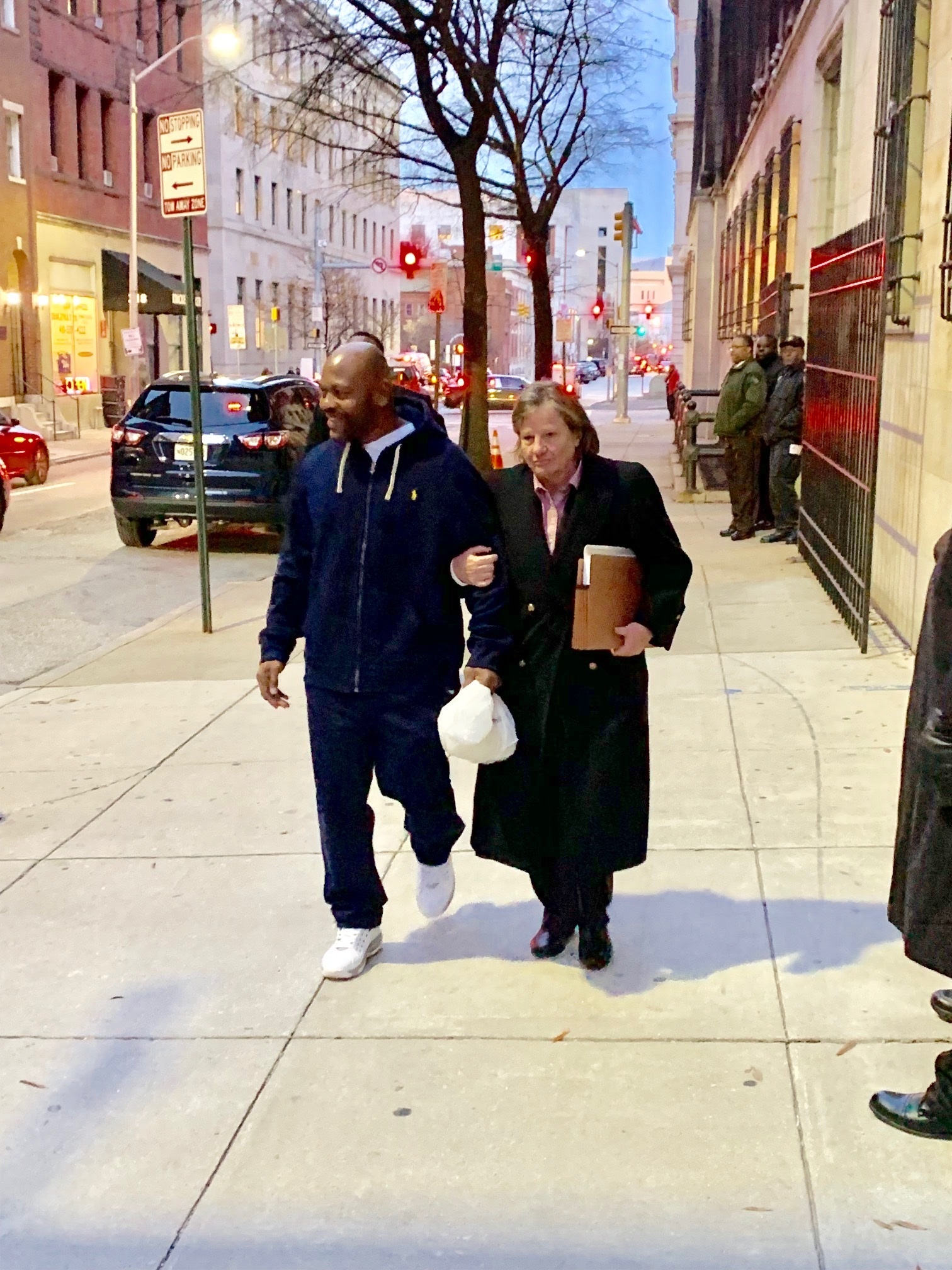Faculty: Professors
Erica J. Suter
Would you like to support the work of the Innocence Project Clinic?
Go to the UBalt Giving page. When asked to choose a fund, select “other” and write in Innocence Project Clinic in the field below.
Thank you!
The ongoing revelations over the last decade of the number of individuals who have been convicted of crimes they did not commit have led to some profound rethinking about the nature of our criminal justice system. Nationwide, law students in Innocence Projects have worked to free hundreds of wrongly convicted inmates, giving them their lives back after years of unjust incarceration.
In 2008, the University of Baltimore School of Law and the Maryland Office of the Public Defender collaborated on the creation of an Innocence Project Clinic. The clinic seeks to identify individuals who have been convicted in Maryland state courts of crimes they did not commit and to provide them with assistance in the investigation of their claims. In appropriate cases, representation will be provided in post-trial litigation efforts to secure exonerations. The clinic is run by an experienced criminal defense attorney with expertise in DNA and other forms of scientific evidence who has secured the exoneration of numerous individuals in the course of her career.
Prof. Erica J. Suter, director of the Innocence Project Clinic, delivers the Third Annual Lecture hosted by The Judge Alexander Williams, Jr. Center for Education, Justice & Ethics on Nov. 11, 2021.

Clarence Shipley Jr. Exonerated in 2018
On Dec. 18, 2018, Clarence Shipley Jr. hugged his mother for the first time in 27 years. That day, a judge exonerated him of murder charges on which he was wrongfully convicted in 1992. His release from prison came following an investigation by UB’s Innocence Project Clinic and others. “I lost a lot,” says Shipley. “I lost a child while I was behind bars. A child I never got to know.”
In addition to a number of other significant exonerations, some of which take years to achieve, the clinic’s student-attorneys and faculty have lobbied for changes to Maryland law. They have advocated for higher admissibility standards for eyewitness identification, a type of evidence that has been found increasingly unreliable. They also are fighting for changes to Maryland’s compensation statute for the wrongly convicted.
Students in the IPC interview witnesses, clients and potential clients. They also conduct factual investigation, draft motions and briefs, and negotiate and argue motions in trial courts. In the process, they develop skills in interviewing, fact investigation, and negotiation and trial preparation, as well as collaboration and problem-solving. Students have the opportunity to work with experts in the fields of forensic DNA testing, forensic pathology and various other scientific disciplines. The clinic handles cases that involve DNA testing as well as those cases that rely solely on factual reinvestigation of the underlying crime to obtain exonerating evidence.
Prerequisites: First-year day courses
Co- or prerequisite: Evidence, Con Crim Pro I
Policies and procedures:
Note:The Innocence Project Clinic is a year long clinic. A total of 6 credits will be awarded at the end of the spring semester.
The Innocence Project Clinic selects its students through the lottery process.

